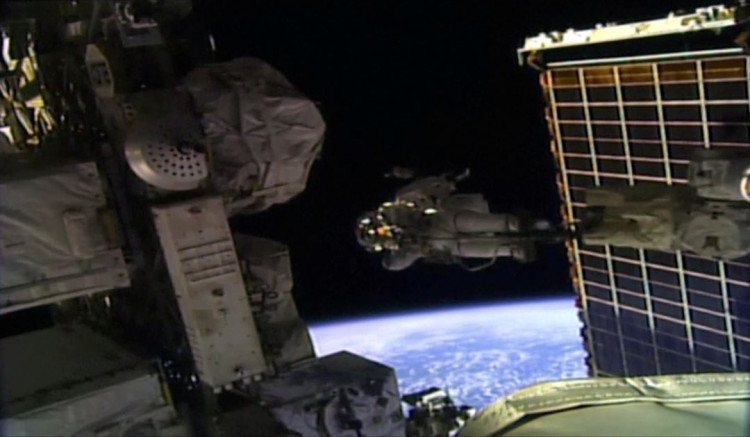After receiving a warning that debris might pass close to the International Space Station, NASA postponed a spacewalk by two astronauts just hours before it was supposed to begin.
A "debris notification" received on the evening of Nov. 29 prompted NASA to postpone the spacewalk by astronauts Tom Marshburn and Kayla Barron, which had been slated to begin at around 7:10 a.m. ET, according to a brief statement released early Nov. 30. They were going to replace an S-band antenna on the station's truss that had just stopped transmitting data.
"Due to the lack of opportunity to properly assess the risk it could pose to the astronauts, teams have decided to delay the spacewalk until more information is available," NASA said in the statement.
It was unclear whether the warning was in response to space debris caused by a Russian anti-satellite test two weeks ago, which led crew members on the International Space Station to scramble for their safety.
According to the U.S. Space Command, Russia tested a direct-ascent anti-satellite missile, which hit a Russian satellite and created a debris field in low-Earth orbit with 1,700 pieces of trackable orbital debris, as well as hundreds of thousands of smaller pieces of orbital debris. The process of cataloging all of the additional debris created by the test is expected to take months.
Marshburn and Barron, along with NASA astronaut Raja Chari and European Space Agency astronaut Matthias Maurer, arrived on the International Space Station on November 11 aboard their SpaceX Crew Dragon capsule.
After the Russian test, NASA Administrator Bill Nelson said in a statement that he was "outraged by this irresponsible and destabilizing action."
"With its long and storied history in human spaceflight, it is unthinkable that Russia would endanger not only the American and international partner astronauts on the ISS, but also their own cosmonauts. Their actions are reckless and dangerous, threatening also the Chinese space station," Nelson said.
While the debris field was initially concentrated, it has dissipated with time, according to Dana Weigel, NASA's deputy manager of the International Space Station Program before the spacewalk was canceled. The team in charge of planning the spacewalk used models and forecasts to better understand the environment in which the astronauts will be working.
The communications antenna, which had been operating for 21 years, recently stopped sending signals to Earth via NASA's Tracking and Data Relay Satellite System. Before the spacewalk was postponed, mission managers detected the problem in September, according to Vincent LaCourt, NASA spacewalk flight director.
Tuesday's spacewalk would have been the 245th from the International Space Station, which has been a continuous low-Earth orbit hub for humans for the past 21 years.






